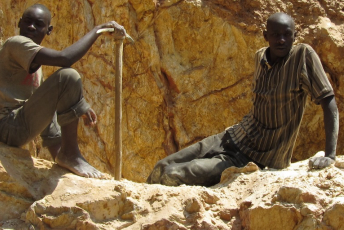Kenya faces a scourge of illegal and unregulated sand mining, a crime which is leaving irreversible scars on ecosystems, lives and livelihoods. Sand mining has been driving inter-communal conflict and has ushered in a violent cartel market protected and controlled by state actors. Weak legislation, ineffective controls and an insatiable demand for sand, fuelled mainly by the construction industry, all contribute to the problem. With lack of a formidable alternative, sand remains the only option for mass concrete production. But it must be harvested sustainably and not mined – as promising practices in communities suggest.
About the author
Mohamed Daghar is the ENACT Programme’s Regional Organised Crime Observatory (ROCO) coordinator for East Africa and the Horn of Africa, based in Nairobi. Before taking up this position, Mohamed worked with government and other research centres conducting analyses on evolving areas of crime and how to respond to them. He has a Masters degree in peace, conflict and development studies from Universitat Jaume I, Spain.
Image: © Cooks Well/Flickr







